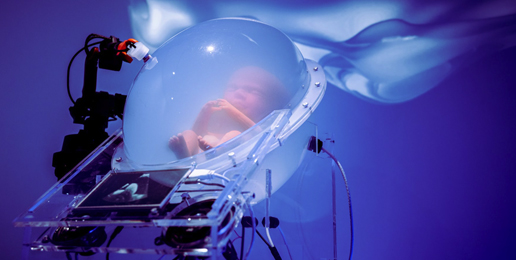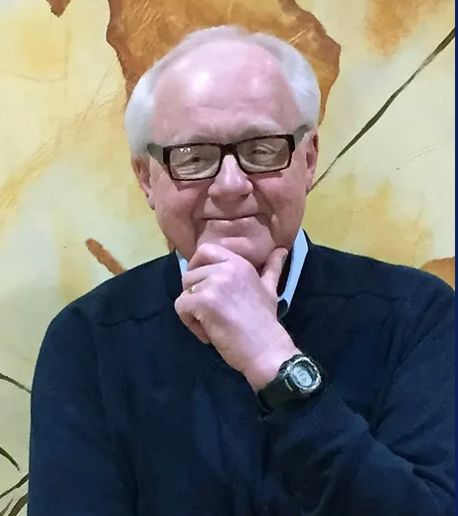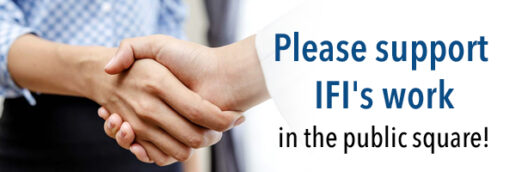
If a woman decides to abort her child, but chooses to put the child up for adoption using an artificial womb, does that make it a pro-life decision? A challenging question to be sure. The very kind of issue that comes under scrutiny at The Center for Bioethics & Human Dignity (CBHD) in Deerfield, Illinois.
Several days ago, IFI published my first article on the subject of ectogenesis—enabling life to develop outside of a natural womb. Today, the conversation continues with Dr. Matthew Eppinette, the Executive Director of the CBHD.
When I asked him if the ectogenesis debate involves moral or ethical issues he simply replied, “Yes.” He noted that
the important thing is that in both [moral and ethical] we are concerned about how to live, which, as theologian James William McClendon said, “is a question no one can escape.”
Dr. Eppinette read the article I sent to him titled, “Artificial Wombs will Change Abortion Rights Forever.” He was impressed that the writer did a good job of working through various scenarios. Despite a more generally liberal slant to the publication Wired, he felt they offered strong questions about the headline they chose.
Will artificial wombs change abortion rights forever? Doubtful. As Dr. Eppinette says, “Perhaps most women would be unwilling to have their unborn child placed in an artificial womb rather than continue their pregnancy.” He adds, “Technological advances do change ethical conversations simply by creating additional options.”
The Wired article makes clear that ectogenesis will not ultimately upend abortion debates.
Okay, but… could ectogenesis advance the cause of the pro-life community? Or might it work against us? Dr. Eppinette is concerned that by embracing the ectogenesis technologies as an alternative to abortion, we might be alienating human beings from one another.
How so? We might find ourselves leaning heavily “into cultural narratives of radical individual autonomy rather than acknowledging the deep dependence that human beings have on one another.” That would likely happen no matter how much we might want to avoid acknowledging it.
He cites on this point Carter Snead’s book What It Means to be Human. This work considers the “Virtues of Acknowledged Dependence”—things like justice, generosity, hospitality, compassion, gratitude, humility, and openness, among others.
Dr. Eppinette explains that caring well for mother and child both during pregnancy and long after, are “far more important to pro-life work than technological solutions.” And thus we see why, like most issues surrounding “life,” complexity remains.
But how might this birthing option change opportunities for parents hoping to adopt? In other words, some women might choose to forego abortion and instead transfer the baby into an artificial womb so that someone could adopt the baby. To which Dr. Eppinette replied,
It does not seem possible to know whether or how often that might happen, but I am skeptical that this will be a frequently chosen path.
Finally, I asked if the CBHD has a position paper on ectogenesis. While they do not, Dr. Eppinette recommended this 2021 article: “Artificial Wombs: A Theological-Ethical Analysis about Partial Ectogenesis.”
In reading the aforementioned article, one paragraph personally troubled me. A reference was made to a 1971 essay on A Defense of Abortion by philosopher Judith Thompson. She argued this:
That even if a fetus is a person at the moment of conception, a woman’s bodily autonomy…means that it is morally acceptable to remove the fetus from her body. The ensuing death of the fetus is an inevitable consequence of ending the pregnancy, rather than the woman’s intention. This means that abortion is more an act of self-defense on the woman’s part than an intentional killing.
My, what ludicrous lengths we will go to to justify our actions. And to attempt to absolve ourselves of the guilt that often results.
Those who seek the wisdom of the Divine should consider these words in Job 10:11-12: “You clothed me with skin and flesh, and you knit my bones and sinews together. You gave me life and showed me your unfailing love. My life was preserved by your care.” (NLT)
May those who love God be of like mind and do the work of preserving life.
The website CBHD.org offers a wealth of information on a wide variety of bioethical issues.





















